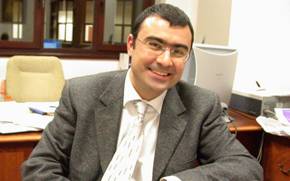
By
Research by two Boston College economists who specialize in the field of “matching markets” figures prominently in the work that this year received the Nobel Prize for economics from the Royal Swedish Academy of Sciences.
The work of Professors Tayfun Sönmez and Utku Ünver in the areas of school assignment and kidney donation is mentioned numerous times in the scientific background paper compiled by the prize committee of the Royal Swedish Academy, which awarded Alvin Roth and Lloyd Shapley the Nobel Prize in economics.
“Using empirical, experimental and theoretical methods, Roth and his coauthors, including A. Abdulkadiroglu, P.A. Pathak, T. Sönmez and M.U. Ünver, have studied the institutions that improve market performance, thereby illuminating the need for stability and incentive compatibility. These contributions led directly to the successful redesign of a number of important real-world markets,” the academy noted.
Sönmez and Ünver are economic theorists who apply their market and resource allocation theories to important problems in areas where the exchange of goods and services between parties are far more complex than conventional commercial transactions.
Their research has helped to create new models that improve the matching of students with public school assignments, multiple kidney transplant recipients with suitable donors, and tenants with housing units. Their work was instrumental in the creation in 2004 of the New England Program for Kidney Exchange.
One or both of the Economics faculty members are co-authors on 16 of the Roth papers cited by the Nobel organization. Ünver and Sönmez have published their work in such prestigious journals as the New England Journal of Medicine, American Economic Review and the Journal of Economic Theory.



